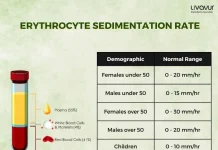This article has been reviewed by experts

Vitamin B12 deficiency is a condition that occurs when there is an insufficient amount of vitamin B12 in the body, which can lead to various health issues. It is considered a serious condition because B12 is essential for numerous bodily functions, including nerve function, DNA synthesis, and the production of red blood cells. Vitamin B12 deficiency causes are mainly dietary and are strongly associated with vegetarian diets, since meat, fish and dairy are the main sources of vitamin B12.
Vitamin B12 Deficiency Symptoms
Here is a detailed list of possible B12 deficiency symptoms and explanations for each:
- Fatigue: B12 deficiency affects energy levels by impairing the production of red blood cells, leading to anaemia, which results in reduced oxygen delivery to tissues and fatigue (1). Additionally, it disrupts the metabolism of carbohydrates, fats, and proteins, essential for energy production. Vitamin B12 deficiency anaemia is a common problem in India.
- Pale or Jaundiced Skin: B12 deficiency can hinder the production of healthy red blood cells, leading to pale skin or, in severe cases, jaundice (2). Jaundice is a yellowing of the skin and eyes due to excess bilirubin, a waste product of red blood cell breakdown.
- Numbness and Tingling: B12 is vital for nerve health; deficiency can cause nerve damage, resulting in numbness and tingling in extremities (3). This can also cause a loss of sensation or reduced reflexes.
- Memory Problems: B12 plays a role in cognitive function, and deficiency may lead to memory issues and cognitive decline. In fact, Studies have shown that the list of vitamin B12 deficiency diseases can include conditions such as Alzheimer’s disease and dementia (4).
- Difficulty Concentrating: Poor concentration and mental fogginess can occur due to reduced neurological function. B12 deficiency can impair the synthesis of neurotransmitters, which are chemical messengers that regulate mood, attention, and cognition (5).
- Mood Changes: B12 deficiency may contribute to mood swings, depression, or anxiety. This may be due to the effects of low B12 on the brain, as well as the stress and frustration of dealing with other symptoms.
- Mobility Problems: Nerve damage from low B12 can affect balance and coordination, while the deficiency can also cause muscle weakness and poor muscle coordination. This not only affects your ability to perform physical tasks and exercise, but can increase the risk of falls and injuries, especially in older adults.
- Mouth Ulcers: B12 deficiency can lead to mouth ulcers and sores (6). These can be painful and may interfere with one’s ability to eat and speak normally, also increasing the risk of infections.
- Visual Disturbances: Blurred or distorted vision may occur due to nerve damage. B12 deficiency can also affect the optic nerve, which connects the eye to the brain (7). This is one of the most serious vitamin B12 deficiency diseases as it can lead to vision loss if left untreated.
- Heart Palpitations: Cardiovascular disease or CVD is not usually associated with vitamin deficiency, but there is evidence that it could be among the many vitamin B12 deficiency diseases. Low B12 levels can affect the cardiovascular system, leading to heart palpitations (8). These are sensations of your heart beating too fast, too slow, or irregularly. They may be accompanied by chest pain, shortness of breath, or fainting and over time can result in heart disease.
- Shortness of Breath: Vitamin B12 deficiency anaemia is a common condition that can cause shortness of breath and dizziness. This is because your body does not have enough red blood cells to carry oxygen to your organs and tissues.
- Digestive Issues: B12 absorption depends on stomach acid; conditions like gastritis or pernicious anaemia can hinder absorption. This can lead to digestive problems like nausea, vomiting, diarrhoea, constipation, or bloating.
- Hair Loss & brittle nails: Although less common, hair loss can be a symptom of B12 deficiency. B12 deficiency may also result in brittle, weak nails. These problems may arise due to impaired keratin production, as well as reduced cell division and growth in the hair follicles (9).
- Reduced Immunity: B12 is crucial for a healthy immune system; deficiency can lead to increased susceptibility to infections (10). This is because B12 is involved in the production of white blood cells, which fight off pathogens.
- Menstrual Irregularities: B12 deficiency can affect the menstrual cycle by disrupting the production of red blood cells, leading to anaemia, which may cause irregular or heavy periods (11). Additionally, it can impact hormonal balance, potentially affecting the timing and regularity of menstruation.
Vitamin B12 Deficiency Self Care Advice
If you suspect a B12 deficiency or have been diagnosed with one, it’s crucial to follow your doctor’s vitamin B12 deficiency treatment recommendations, which may include B12 supplements or dietary changes. Additionally, consider increasing your intake of B12-rich foods like meat, fish, dairy products and fortified cereals. You can also discuss Ayurvedic herbs and supplements for vitamin B12 deficiency with an Ayurvedic doctor, as there are numerous formulations such as Triphala that are highly recommended. Proven plant-based sources of vitamin B12 include dried purple laver (nori), which is known as the best vegetarian source of B12, along with tempeh, while broccoli, asparagus and mung bean sprouts contain trace amounts of B12 (12).
Conclusion
If dietary changes alone do not relieve the problem, it’s crucial to seek diagnosis and treatment promptly to prevent long-term complications and vitamin b12 deficiency diseases such as anaemia, nerve damage, cognitive decline, and cardiovascular issues. Regular check-ups to monitor your B12 levels are also essential for effective management.
FAQs
Can vitamin B12 deficiency be a sign of cancer?
Vitamin B12 deficiency can sometimes be a sign of cancer, as certain cancers may interfere with B12 absorption or increase its demand in the body.
How long does it take to recover from vitamin B12 deficiency?
Recovery from vitamin B12 deficiency varies but can take several weeks to months with proper treatment.
Aside from causing disease can B12 deficiency be a symptom?
Yes, B12 deficiency can be a symptom of underlying diseases like pernicious anaemia, celiac disease, or atrophic gastritis (13).
Disclaimer: This article is written from a health and lifestyle perspective. It is for general information and not meant to substitute any medical advice. Please consult your doctor for appropriate medical consultation.
References:
- https://www.mdpi.com/1422-0067/22/18/9694
- https://casereports.bmj.com/content/2018/bcr-2017-222302.long
- https://www.ncbi.nlm.nih.gov/pmc/articles/PMC5273828/
- https://www.ncbi.nlm.nih.gov/pmc/articles/PMC7077099/
- https://www.mdpi.com/2072-6643/8/2/68
- https://bmcoralhealth.biomedcentral.com/articles/10.1186/s12903-016-0215-y
- https://www.sciencedirect.com/science/article/pii/S2049080120304374
- https://www.ejmoams.com/ejmoams-articles/heart-palpitations-due-to-supplements-deficiency-91954.html
- https://www.ncbi.nlm.nih.gov/pmc/articles/PMC6380979/
- https://academic.oup.com/nutritionreviews/article/80/3/561/6427480
- https://www.mdpi.com/2227-9032/11/9/1289
- https://www.ncbi.nlm.nih.gov/pmc/articles/PMC4042564/
- https://www.ncbi.nlm.nih.gov/pmc/articles/PMC8471716/

















